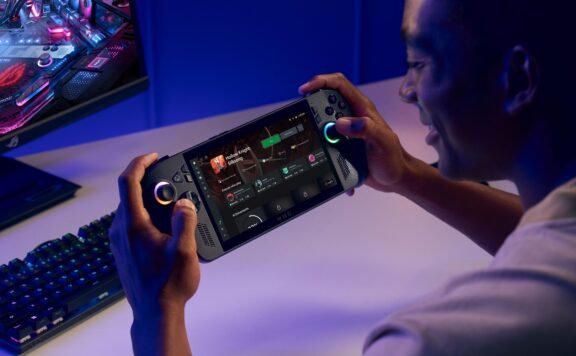Antoine Harb, Team Leader Middle East and North Africa at Kingston Technology talks about Cloud gaming vs conventional gaming, its technical background, advantages and disadvantages, and how Kingston products could supercharge the computer’s system.
The global video game sector is a multi-billion industry that has grown exponentially over decades. The segment is set to witness further expansion, with the 2020 Global Games Market Report forecasting that the number of gamers worldwide will exceed the three-billion mark by 2023. Available figures showed an estimated 2.77 billion gamers in the world as of 2020.
Using their smartphones, gaming consoles and PCs, gamers traditionally purchase and play games at home. Powerful devices are especially crucial in these hardware-based games to prevent the systems from crashing and achieve the best gaming experience.
But with the evolution of technologies, another gaming method has been gaining momentum over the years: cloud gaming. This gaming on-demand allows the streaming and playing of video games on a remote server in a data center. Players can connect to the server via subscription to render the newest available games using their range of devices regardless of specifications.
This innovative game streaming has been around since late 2000. Over the few years, it has been gaining popularity thanks to faster internet speeds and feature-rich devices today. Some of the most popular cloud gaming services today are Nvidia’s GeForce NOW (with over 14 million subscribers); Google’s Stadia (with a subscription base of 2 million); Sony’s PlayStation Now (with 3.2 million subscribers); and Microsoft’s Xbox Cloud Gaming (with Xbox Game Pass having 25 million subscribers), among others.
One of the most attractive advantages that cloud gaming offers is that gamers can play any game at any time. The only requirement is for them to have a steady internet connection with excellent speed to be able to stream more data that comes with this type of gaming. Furthermore, cloud gaming ensures better security, with service providers storing and transferring user data via secure connections.
The subscription-based model is just as appealing, as it allows an individual to choose from a huge catalog of games. With that said, however, one should not forget the subscription costs and the need to pay more to have excellent broadband speed, a requirement for fast game streaming. These are all additional expenses.
There is also the fact that the subscribers would have to contend with the likelihood that some of the games may eventually become unavailable in the catalog. This is especially true if the service provider chooses not to renew their licenses.
Hardware vs cloud gaming
Despite the steadily rising popularity of cloud gaming, one cannot deny that some hardcore gamers still opt for conventional gaming. These are tech-savvy gamers who can tweak the settings of their devices, upgrade their hardware and install modifications for the best experience.
Particularly, the speed and graphics of gaming hardware are key considerations when deciding between hardware and cloud gaming. With hardware-based gaming, players can supercharge their computer system by installing solid-state drives (SSDs) into their devices.
SSDs are 35 to 100 times faster than hard disk drives (HDDs) ensuring faster booth times, more reliable data movement and higher bandwidth for a more enjoyable gaming experience. Non-volatile memory express (NVMe) SSD is the best overall for gaming because of its impressive read/write speeds and ability to reduce the latency factor. The read/write speeds of NVMe SSDs range from 1000 to over 7000MB/s, depending on whether they are Gen 3 or Gen 4.
In today’s market, Kingston FURY Renegade PCIe 4.0 NVMe M.2 SSD is one of the top-notch products that offers blazing speeds of up to 7,300/7,000MB/s read/write and capacities from 500GB to 4TB. These features make Kingston FURY Renegade an ideal SSD specifically for PC gaming.
Video games will continue to evolve in the coming years, even becoming more and more lifelike as technology advances. Choosing between hardware and cloud gaming depends on one’s preference. Regardless, high-performing devices with superior features will help make a huge difference in your experience.






